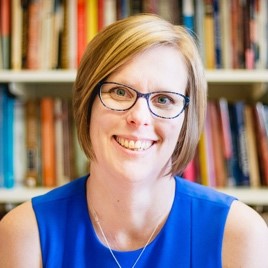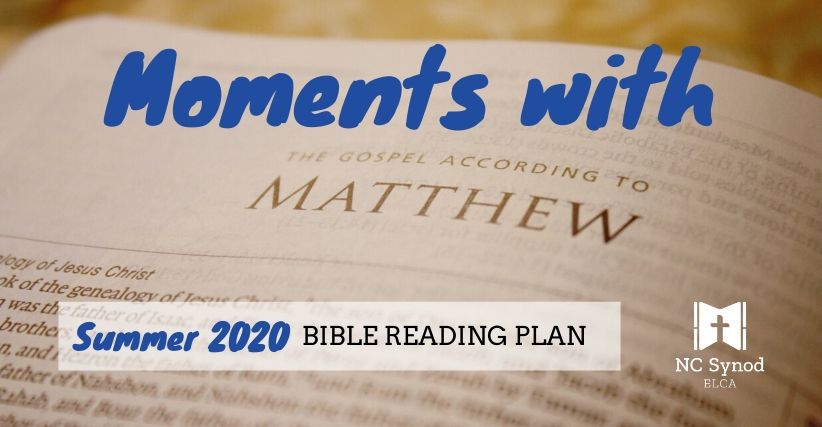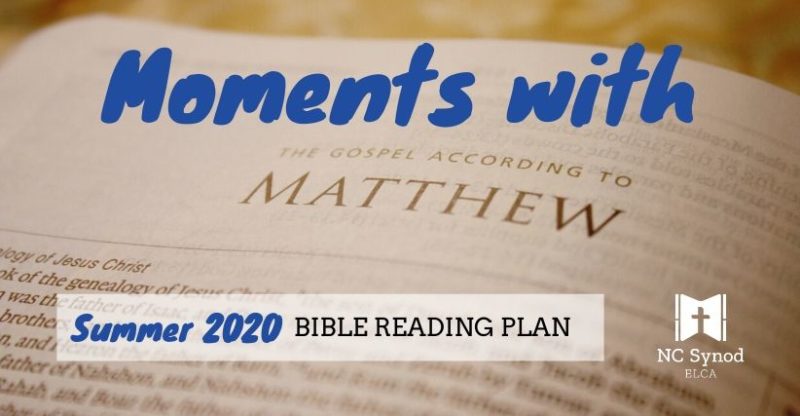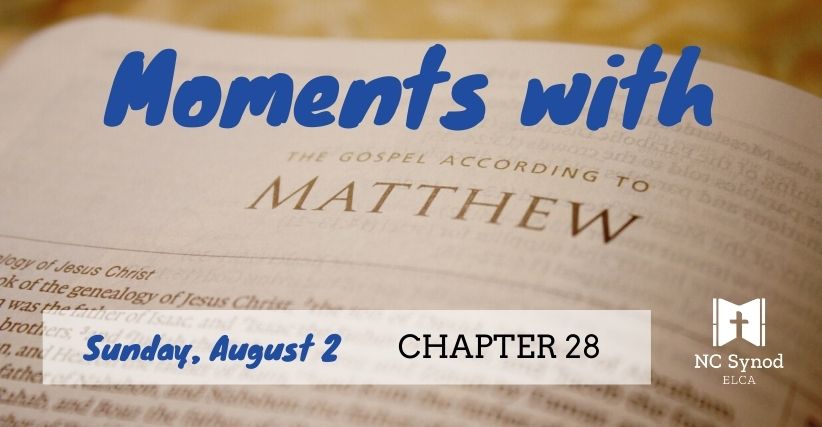Reading 1 – Introducing Moments with Matthew
Matthew’s gospel has so many wonderful moments scattered through its pages: the visit of the Magi; Mary, Joseph and Jesus become refugees in Egypt; the Sermon on the Mount; the resurrection of the dead when Jesus is crucified; the great commission. This summer, I hope you will join me in exploring these moments with the North Carolina Synod. Many of these moments ask questions about how to live faithfully in community. How should a community care for its members? How do we gather together? What do we do when we disagree? How do we invite others to join our faith community? As Lutherans in this moment in our collective human history—during the Great Pandemic of 2020—we are asking many of these same questions about our communities and way of faith.
Matthew was likely written sometime in the 80s CE. That’s about 50 years after Jesus’s crucifixion and nearly 15 years after the Romans brutally destroyed Jerusalem and its temple. Some parts of the Jewish world were roiling still, trying to rebuild and resist Roman domination. Other Jewish groups, like the Pharisees, were flourishing all around the Mediterranean rim. Their emphasis was less about temple rituals and more about strong local communities and religious education. Contemporary readers often (and unintentionally) read Matthew as warning against Jewish practice—“But woe to you, scribes and Pharisees, hypocrites!” (Matt. 13)—but that doesn’t work since Jesus also tells his followers that not a single, itty, bitty bit of the law goes away with his coming and that their righteousness must exceed that of the Pharisees (Matt. 5:17–20). What if Matthew’s gospel does not condemn the Pharisees or Jewish practices, but rather challenges the community to deepens their impulse toward mercy, generosity, and justice—impulses that were already deeply ingrained in Jewish faith and practice?
I know, I know, that’s not very Lutheran. But neither was Matthew. Or anyone in the community for whom he was telling the Jesus story. The first readers of Matthew probably understood themselves as Jewish Jesus-followers—the term Christian wasn’t invented yet. Nonetheless, we have much to learn from our ancestors (and contemporaries) in faith, especially since they, too, were/are living in an unprecedented time when their usual ways of being community were no longer possible or available.
I encourage you to read the Gospel of Matthew and its moments a little differently this summer. Those moments are full of wisdom for living, loving, and faithfully creating communities in unusual times.
To Consider:
- How has community-gathering changed in your lifetime? In this moment?
- What connects you most vividly to your faith in such moments of change?
Faithful God, you draw us into moments with you and with your Word that we cannot anticipate or sometimes even understand. Give us courage to follow where those moments lead, assurance of your presence, and joy in the new communities you are building. Amen.




